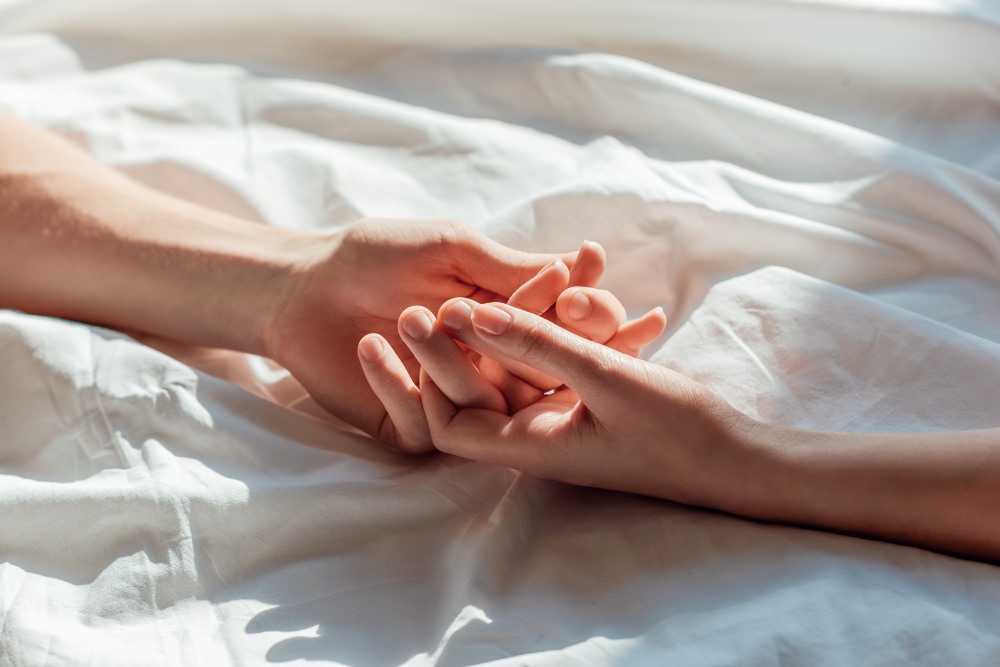Can Bartholin Cysts Cause Pain During Intercourse?

There are a lot of things that can cause pain and discomfort during sexual intercourse and that can take you right out of the intimate moment. One of the things that can cause pain and discomfort during sexual intercourse and other forms of intimacy is Bartholin cysts. While bartholin’s cysts are typically not dangerous, they can cause some problems among some women, which can make these intimate encounters uncomfortable. But what are Bartholin cysts, and what causes them? Let’s take a look at this commonly misunderstood condition, as well as how to treat it.
What Are Bartholin Cysts?
Bartholin cysts, also known as Bartholin duct cysts, are fluid-filled swellings that can develop on either side of the vaginal opening. These cysts arise from the blockage of the Bartholin glands, which are responsible for secreting lubricating fluid into the vagina. While Bartholin cysts can sometimes be asymptomatic and harmless, they can also cause significant discomfort, particularly during sexual intercourse. Understanding the nature of Bartholin cysts, their symptoms, and the ways they impact sexual activity is essential for affected individuals seeking relief and appropriate treatment.
The Bartholin glands, located at the entrance of the vagina, are about the size of a pea and function to secrete mucus that aids in lubrication. When the ducts of these glands become blocked, the fluid backs up, forming a cyst. These cysts can vary in size from a few millimeters to several centimeters in diameter. While small cysts may not cause noticeable symptoms, larger ones can lead to significant discomfort.
Symptoms of Bartholin Cysts
Bartholin cysts can present a range of symptoms depending on their size and whether they become infected. Common symptoms include:
- Visible Swelling: A lump near the vaginal opening, which may grow over time.
- Discomfort: Sensation of fullness or pressure in the vaginal area.
- Pain: Particularly when walking, sitting, or during sexual intercourse.
- Redness and Tenderness: If the cyst becomes infected, it can form an abscess, which is usually accompanied by increased pain, redness, and tenderness.
- Fever: In cases of infection, systemic symptoms like fever might occur.
Bartholin Cyst Impact on Sexual Intercourse
Bartholin cysts can certainly affect sexual intercourse, primarily due to the discomfort and pain they cause. The pain during intercourse, medically known as dyspareunia, can be particularly distressing for affected individuals. Several factors contribute to this pain:
- Pressure and Friction: During intercourse, the pressure and friction exerted on the vaginal area can cause direct irritation to the cyst. This can lead to sharp or throbbing pain that makes sexual activity uncomfortable or intolerable.
- Increased Size During Arousal: Sexual arousal increases blood flow to the genital area, potentially causing the cyst to swell further and become more painful.
- Emotional and Psychological Impact: Chronic pain during intercourse can lead to anxiety, reduced libido, and relationship stress. The anticipation of pain may cause individuals to avoid sexual activity altogether, impacting their emotional well-being and intimate relationships.
Treatment for Bartholin Cysts
Treating Bartholin cysts involves addressing the cyst itself and the symptoms it causes. The appropriate treatment depends on the size of the cyst, the severity of symptoms, and whether an infection is present. Common treatment options include:
- Warm Sitz Baths: Soaking in a warm bath several times daily can help reduce swelling and promote cyst drainage.
- Pain Relief: Over-the-counter pain relievers such as ibuprofen can help manage discomfort.
- Surgical Drainage: A minor surgical procedure may be necessary to drain the fluid for larger or more painful cysts. This can provide immediate relief from pain and pressure.
- Marsupialization: In cases of recurrent cysts, a surgical procedure called marsupialization may be performed. This involves creating a small, permanent opening to allow continuous drainage and prevent future blockages.
- Antibiotics: If the cyst is infected and has formed an abscess, antibiotics are prescribed to treat the infection. Surgical drainage might also be required to remove the abscess in some cases.
- Laser Therapy: This method can treat recurring cysts by destroying the cyst lining and preventing fluid accumulation.
Ways to Prevent Bartholin Cysts
While it’s not always possible to prevent Bartholin cysts, certain practices can reduce the risk of developing them or mitigate symptoms:
- Good Hygiene: Regular cleaning of the genital area can help prevent infections that might lead to cyst formation.
- Avoiding Irritants: Using mild, unscented soaps and avoiding douches or feminine sprays can reduce irritation.
- Prompt Treatment: Seeking medical attention at the first sign of discomfort can prevent cysts from growing and becoming more painful.
- Regular Check-Ups: Regular gynecological exams can help detect cysts early, allowing prompt treatment and management.
To learn more about bartholin cysts, call the office of Dr. Ghozland today at 310-393-9359 and we will be happy to answer any questions you may have, or get you scheduled with an appointment.
